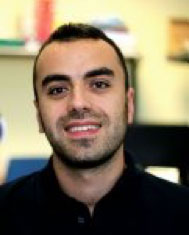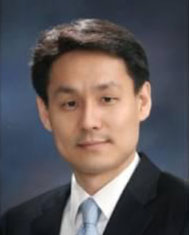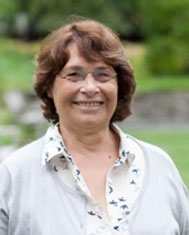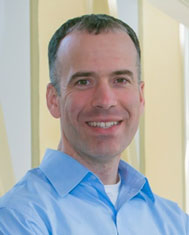ICRA Workshop 2017

Full-day Workshop on Assistive Robotics: From the Natural to the Artificial and Back Again (June 2, 2017)
The objective of this workshop is to explore how robotics technology can drive the restoration of function in people with movement disabilities. These disabilities are due to spinal cord injury, traumatic brain injury, stroke, muscular dystrophy, and other neuromuscular conditions. Intelligent robots using natural and human-like perception, learning, and control strategies are changing the game in industrial settings. However, this transformation has not happened for assistive devices such as neuroprostheses that electrically stimulate the nervous system, exoskeletons, prosthetic limbs, and extra robotic limbs. Due to the complexity of integrating with humans, assistive technologies lag behind conventional robotics. Artificial assistive devices need to recapture the natural capabilities that they are meant to replace. To achieve the workshop’s objective we will bring together experts in four related fields: 1) treatment of neuromuscular conditions that cause movement disabilities, 2) human motor control, 3) human-like control of robots, and 4) robotic assistive technologies. In the morning session, an expert from each field will deliver an invited overview presentation on the state of the art in his/her field, the experts will engage in a panel discussion to frame opportunities for collaboration across the four fields, and researchers will present new research in short presentations. The afternoon will be dedicated to moderated discussions among small groups of researchers from all four areas and a final large group discussion to summarize common themes in the small group discussions and ways to move forward.
Schedule
| Time | Description |
|---|---|
| 08.30 - 08.45 | Introduction by the organizers |
| 08.45 - 09.15 | Invited talk by Prof. Kyujin Cho 'Design of Tendon Driven Soft Wearable Robots' |
| 09.15 - 09.45 | Invited talk by Prof. Yoshihiko Nakamura 'Human Biorobotics: from Motion Analysis to Motion Training' |
| 09.45 - 10.15 |
Invited talk by Prof. Effie Chew 'Post-stroke Motor Recovery and Rehabilitation' |
| 10.15 - 10.30 | Coffee Break. |
| 10.30 - 11.00 | Invited talk by Prof. Robert Riener 'How to Derive a Soft Exosuit from Human Gait Biomechanics' |
| 11.00 - 11.20 | Talk by Prof. Eric Schearer 'Controlling Paralyzed Arms with Functional Electrical Stimulation Neuroprostheses' |
| 11.20 - 11.40 | Talk by Dr. Arash Ajoudani 'Intention-Aware Interfaces for Anticipatory Robot Assistance' |
| 11.40 - 12.00 | Invited overview talk by Prof Ang Wei Tech Co-Director of the Rehabilitation Research Institute of Singapore (RRIS) |
| 12.00 - 12.30 |
Panel Discussions |
| 12.30 - 13.30 | Lunch Break |
| 13.30 - 14.00 |
Invited talk by Prof. Antonio Bicchi 'From Robotics to Prosthetics and Assistance with Upper Limb Prostheses' |
| 14.00 - 14.30 |
Invited talk by Prof. Tamar Flash 'Controlling Human Motor Behavior' |
| 14.30 - 15.00 | Invited talk by Prof. Darwin Caldwell 'Actuator Technologies for Assistive Applications' |
| 15.00 - 15.15 |
Coffee Break |
| 15.15 - 15.45 | Invited talk by Prof. Martin Giese 'Predictive primitive-based human control of coordinated full-body movements and its transfer to a humanoid robot' |
| 15.45 - 15.55 | Contributing Speakers: Open World Assistive Grasping Using Laser Selection |
| 15.55 - 16.05 | Contributing Speakers: Wearable Sensory Motor Interfaces for Supernumerary Robotic Fingers |
| 16.05 - 16.15 | Contributing Speakers: Soft pneumatic actuators for finger flexion and abduction-adduction |
| 16.15 - 17.00 | Round Table Discussions |
| 17.00 - 17.15 | Wrap-up |
Organizers
Arash Ajoudani
Arash Ajoudani received his PhD degree in Robotics and Automation from Centro "E Piaggio", University of Pisa, and Advanced Robotics Department (ADVR), Italian Institute of Technology (IIT), Italy (14 July 2014). His PhD thesis was a finalist for the Georges Giralt PhD award 2015 - best European PhD thesis award in robotics. He is currently a tenure-track scientist and the leader of the Human-Robot Interfaces and physical Interaction (HRI2) lab of the IIT. He was a finalist for the best manipulation paper award at ICRA 2012, a winner of the best student paper award at ROBIO 2013, a finalist for the best oral presentation award at Automatica (SIDRA) 2014, and a finalist for the best interactive paper award at Humanoids 2016. He is the author of the book "Transferring Human Impedance Regulation Skills to Robots" and several publications in journals, international conferences, and book chapters. He is currently serving as the executive manager of the IEEE-RAS Young Reviewers' Program (YRP), co-chair of the IEEE-RAS Member Services Committee, and representative of the IEEE-RAS Young Professionals Committee. He has been serving as associate editor and scientific advisory committee for several conferences such as IEEE Biorob and ICORR. His main research interests are in physical human-robot interaction and cooperation, robotic manipulation, robust and adaptive control, rehabilitation robotics, and tele-robotics.Kyujin Cho
Kyujin Cho received his BS and MS in Mechanical Engineering from Seoul National University in 2002, and PhD in Mechanical Engineering from MIT in 2007. He was an post doctoral researcher at MIT from Feb 2007 to May 2007, at Harvard Microbotics Lab from June 2007 to July 2008. Since September 2008 he has been an assistant professor in the School of Mechanical and Aerospace Engineering at Seoul National University. His research interests are in biologically inspired robotics, micro machining, and smart actuator.Tamar Flash
Tamar Flash is a professor of computer science and applied mathematics at the Weizmann Institute of Science in Israel. In her research, she focuses on computational neuroscience, specifically on the control of movement by the brain. Experimental data drawn from precise observation of human subjects have enabled Flash to develop mathematical models characterizing the way in which the human brain plans and controls movements of the hand and arm, locomotion, and other full body movements. Flash also seeks new insights into the pathophysiological processes and mechanisms underlying various movement disorders. Her research further focuses on the development of biologically inspired robotic systems.
Flash earned her BSc and MSc degrees in physics from Tel Aviv University and her PhD in medical physics from the Massachusetts Institute of Technology. She carried out her postdoctoral training at MIT. She established a research group at the Weizmann Institute, where she has also served as head of the board of studies and of the Department of Computer Science and Applied Mathematics. Flash was a visiting professor at MIT, the Collège de France, UC Berkeley and a fellow of the Radcliffe school of advanced studies, Harvard University.
Eric Schearer
Eric Schearer is an Assistant Professor of Mechanical Engineering at Cleveland State University, an Investigator with the Cleveland Functional Electrical Stimulation Center, and a member of the Bioscientific Staff at MetroHealth Medical Center all in Cleveland, U.S.A. He received a B.S. in Mechanical Engineering and an M.B.A. from the University of Notre Dame, an M.S. in Robotics from Carnegie-Mellon University, and a Ph.D. in Mechanical Engineering from Northwestern University. He served as an Air Force officer and worked as a consultant analyzing failures of engineered systems ranging from amusement park rides to eyelash curlers.
Dr. Schearer’s long-term research goal is to create easily usable and widely available neuroprostheses to restore arm functions to people with whole-arm paralysis. Currently these neuroprostheses are systems of surgically-implanted electrodes that can deliver electrical current to activate nerves and muscles to actuate a person's paralyzed shoulder, elbow, wrist, and hand. To achieve this long-term goal he is currently working in the following areas: 1) learning models of the arm’s response to electrical stimulation based on subject-specific data, 2) control of reaching movements using electrical stimulation, and 3) transferring skills from humans to neuroprostheses.
Invited Speakers
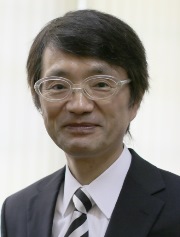 Prof. Yoshihiko Nakamura
Title of the talk: Human Biorobotics: from Motion Analysis to Motion Training
Yoshihiko Nakamura is Professor at Department of Mechano-Informatics, University of Tokyo. He received Doctor of Engineering Degree from Kyoto University. He worked at Kyoto University as Assistant Professor (1982-1987) and at University of California, Santa Barbara, as Assistant and Associate Professor (1987-1991) before joining University of Tokyo. Humanoid robotics, cognitive robotics, neuro musculoskeletal human modeling, biomedical systems, and their computational algorithms are his current fields of research. He is Fellow of JSME, Fellow of RSJ, Fellow of IEEE, and Fellow of WAAS. Dr. Nakamura served as President of IFToMM (2012-2015). Dr. Nakamura is Foreign Member of Academy of Engineering Science of Serbia, and TUM Distinguished Affiliated Professor of Technische Universität München.
Prof. Yoshihiko Nakamura
Title of the talk: Human Biorobotics: from Motion Analysis to Motion Training
Yoshihiko Nakamura is Professor at Department of Mechano-Informatics, University of Tokyo. He received Doctor of Engineering Degree from Kyoto University. He worked at Kyoto University as Assistant Professor (1982-1987) and at University of California, Santa Barbara, as Assistant and Associate Professor (1987-1991) before joining University of Tokyo. Humanoid robotics, cognitive robotics, neuro musculoskeletal human modeling, biomedical systems, and their computational algorithms are his current fields of research. He is Fellow of JSME, Fellow of RSJ, Fellow of IEEE, and Fellow of WAAS. Dr. Nakamura served as President of IFToMM (2012-2015). Dr. Nakamura is Foreign Member of Academy of Engineering Science of Serbia, and TUM Distinguished Affiliated Professor of Technische Universität München.
 Prof. Tamar Flash
Title of the talk: Controlling Human Motor Behavior
Tamar Flash is a professor of computer science and applied mathematics at the Weizmann Institute of Science in Israel. In her research, she focuses on computational neuroscience, specifically on the control of movement by the brain. Experimental data drawn from precise observation of human subjects have enabled Flash to develop mathematical models characterizing the way in which the human brain plans and controls movements of the hand and arm, locomotion, and other full body movements. Flash also seeks new insights into the pathophysiological processes and mechanisms underlying various movement disorders. Her research further focuses on the development of biologically inspired robotic systems.
Flash earned her BSc and MSc degrees in physics from Tel Aviv University and her PhD in medical physics from the Massachusetts Institute of Technology. She carried out her postdoctoral training at MIT. She established a research group at the Weizmann Institute, where she has also served as head of the board of studies and of the Department of Computer Science and Applied Mathematics. Flash was a visiting professor at MIT, the Collège de France, UC Berkeley and a fellow of the Radcliffe school of advanced studies, Harvard University.
Prof. Tamar Flash
Title of the talk: Controlling Human Motor Behavior
Tamar Flash is a professor of computer science and applied mathematics at the Weizmann Institute of Science in Israel. In her research, she focuses on computational neuroscience, specifically on the control of movement by the brain. Experimental data drawn from precise observation of human subjects have enabled Flash to develop mathematical models characterizing the way in which the human brain plans and controls movements of the hand and arm, locomotion, and other full body movements. Flash also seeks new insights into the pathophysiological processes and mechanisms underlying various movement disorders. Her research further focuses on the development of biologically inspired robotic systems.
Flash earned her BSc and MSc degrees in physics from Tel Aviv University and her PhD in medical physics from the Massachusetts Institute of Technology. She carried out her postdoctoral training at MIT. She established a research group at the Weizmann Institute, where she has also served as head of the board of studies and of the Department of Computer Science and Applied Mathematics. Flash was a visiting professor at MIT, the Collège de France, UC Berkeley and a fellow of the Radcliffe school of advanced studies, Harvard University.
 Prof. Antonio Bicchi
Title of the talk: From Robotics to Prosthetics and Assistance with Upper Limb Prostheses
Antonio Bicchi is Professor of Robotics at the University of Pisa, and Senior Scientist at the Italian Institute of Technology in Genoa. He graduated from the University of Bologna in 1988 and was a postdoc scholar at M.I.T. Artificial Intelligence lab in 1988–1990. He teaches Control Systems and Robotics in the Department of Information Engineering (DII) of the University of Pisa. He leads the Robotics Group at the Research Center "E. Piaggio'' of the University of Pisa since 1990, where he was Director from 2003 to 2012. He is the Head of the SoftRobotics Lab for Human Cooperation and Rehabilitation at IIT in Genoa. Since 2013 he serves as Adjunct Professor at the School of Biological and Health Systems Engineering of Arizona State University.
His main research interests are in Robotics, Haptics, and Control Systems in general. He has published more than 400 papers on international journals, books, and refereed conferences. He is Editor-in-Chief of the IEEE Robotics and Automation Letters, which he started in 2015. He has organized and chaired the first WorldHaptics Conference (2005). He is Editor of the book series ``Springer Briefs on Control, Automation and Robotics,'' and has served in the Int.l J. Robotics Research, the IEEE Trans. on Robotics and Automation, IEEE Trans. Automation Science and Engineering, and IEEE RAS Magazine. He was Program Chair of the IEEE Int.. Conf. Robotics and Automation (ICRA'15), and General Chair of the Int. Symposium on Robotics Research (ISRR' 2015) and Hybrid Systems: Computation and Control (HSCC 2007). He was Editor in Chief of the Conference Editorial Board for the IEEE Robotics and Automation Society (RAS), Vice President for Publications (2013-2014), for Membership (2006-2007), and as Distinguished Lecturer (2004-2006) of IEEE RAS. He served as the President of the Italian Association or Researchers in Automatic Control (2012-2013). He is the recipient of several awards and honors. In 2012, he was awarded with an Advanced Grant from the European Research Council for his research on human and robot hands. Antonio Bicchi is a Fellow of IEEE since 2005.
Prof. Antonio Bicchi
Title of the talk: From Robotics to Prosthetics and Assistance with Upper Limb Prostheses
Antonio Bicchi is Professor of Robotics at the University of Pisa, and Senior Scientist at the Italian Institute of Technology in Genoa. He graduated from the University of Bologna in 1988 and was a postdoc scholar at M.I.T. Artificial Intelligence lab in 1988–1990. He teaches Control Systems and Robotics in the Department of Information Engineering (DII) of the University of Pisa. He leads the Robotics Group at the Research Center "E. Piaggio'' of the University of Pisa since 1990, where he was Director from 2003 to 2012. He is the Head of the SoftRobotics Lab for Human Cooperation and Rehabilitation at IIT in Genoa. Since 2013 he serves as Adjunct Professor at the School of Biological and Health Systems Engineering of Arizona State University.
His main research interests are in Robotics, Haptics, and Control Systems in general. He has published more than 400 papers on international journals, books, and refereed conferences. He is Editor-in-Chief of the IEEE Robotics and Automation Letters, which he started in 2015. He has organized and chaired the first WorldHaptics Conference (2005). He is Editor of the book series ``Springer Briefs on Control, Automation and Robotics,'' and has served in the Int.l J. Robotics Research, the IEEE Trans. on Robotics and Automation, IEEE Trans. Automation Science and Engineering, and IEEE RAS Magazine. He was Program Chair of the IEEE Int.. Conf. Robotics and Automation (ICRA'15), and General Chair of the Int. Symposium on Robotics Research (ISRR' 2015) and Hybrid Systems: Computation and Control (HSCC 2007). He was Editor in Chief of the Conference Editorial Board for the IEEE Robotics and Automation Society (RAS), Vice President for Publications (2013-2014), for Membership (2006-2007), and as Distinguished Lecturer (2004-2006) of IEEE RAS. He served as the President of the Italian Association or Researchers in Automatic Control (2012-2013). He is the recipient of several awards and honors. In 2012, he was awarded with an Advanced Grant from the European Research Council for his research on human and robot hands. Antonio Bicchi is a Fellow of IEEE since 2005.
 Prof. Darwin G Caldwell
Title of the talk: Actuator Technologies for Assistive Applications
Darwin G Caldwell is Deputy Director of the Italian Institute of Technology (IIT), and Director of the Dept. of Advanced Robotics at IIT. He is or has been an Honorary Professor at the Universities of Manchester, Sheffield, Bangor, Kings College London and Tianjin University, China. His research interests include; innovative actuators, force augmentation exoskeletons, medical, rehabilitation and assistive robotic technologies, dexterous manipulators, haptics, humanoid and quadrupedal robotics (iCub, cCub, COMAN, WalkMan, HyQ, HyQ2Max, Centauro). He is the author or co-author of over 400 academic papers, and 19 patents and has received Best Paper Awards and nominations from many international journals and conferences (ICRA, IROS, Humanoids, CASE, Robio, WorldHaptics, ICAR, etc). He is a Fellow of the Royal Academy of Engineering.
Prof. Darwin G Caldwell
Title of the talk: Actuator Technologies for Assistive Applications
Darwin G Caldwell is Deputy Director of the Italian Institute of Technology (IIT), and Director of the Dept. of Advanced Robotics at IIT. He is or has been an Honorary Professor at the Universities of Manchester, Sheffield, Bangor, Kings College London and Tianjin University, China. His research interests include; innovative actuators, force augmentation exoskeletons, medical, rehabilitation and assistive robotic technologies, dexterous manipulators, haptics, humanoid and quadrupedal robotics (iCub, cCub, COMAN, WalkMan, HyQ, HyQ2Max, Centauro). He is the author or co-author of over 400 academic papers, and 19 patents and has received Best Paper Awards and nominations from many international journals and conferences (ICRA, IROS, Humanoids, CASE, Robio, WorldHaptics, ICAR, etc). He is a Fellow of the Royal Academy of Engineering.
 Prof. Robert Riener
Title of the talk: How to Derive a Soft Exosuit from Human Gait Biomechanics
Robert Riener studied Mechanical Engineering at TU München, Germany, and University of Maryland, USA. He received a Dr.-Ing. degree in Engineering from the TU München in 1997. After postdoctoral work from 1998-1999 at the Centro di Bioingegneria, Politecnico di Milano, he returned to TU München, where he completed his Habilitation in the field of Biomechatronics in 2003. In 2003 he became assistant professor at ETH Zurich and Spinal Cord Injury Center of the University Hospital Balgrist (“double-professorship”); since 2010 he has been full professor for Sensory-Motor Systems, ETH Zurich. Since 2012, Riener is member of the Department of Health Sciences and Technology, which he is chairing as head since 2016. Riener has published more than 400 peer-reviewed journal and conference articles, 20 books and book chapters and filed 20 patents. He has received 18 personal distinctions and awards including the Swiss Technology Award in 2006, the IEEE TNSRE Best Paper Award 2010, and the euRobotics Technology Transfer Awards 2011 and 2012. Riener’s research focuses on the investigation of the sensory-motor interactions between humans and machines. This includes the development of user-cooperative robotic devices and virtual reality technologies applied to neurorehabilitation. Riener is the initiator and organizer of the Cybathlon 2016.
Prof. Robert Riener
Title of the talk: How to Derive a Soft Exosuit from Human Gait Biomechanics
Robert Riener studied Mechanical Engineering at TU München, Germany, and University of Maryland, USA. He received a Dr.-Ing. degree in Engineering from the TU München in 1997. After postdoctoral work from 1998-1999 at the Centro di Bioingegneria, Politecnico di Milano, he returned to TU München, where he completed his Habilitation in the field of Biomechatronics in 2003. In 2003 he became assistant professor at ETH Zurich and Spinal Cord Injury Center of the University Hospital Balgrist (“double-professorship”); since 2010 he has been full professor for Sensory-Motor Systems, ETH Zurich. Since 2012, Riener is member of the Department of Health Sciences and Technology, which he is chairing as head since 2016. Riener has published more than 400 peer-reviewed journal and conference articles, 20 books and book chapters and filed 20 patents. He has received 18 personal distinctions and awards including the Swiss Technology Award in 2006, the IEEE TNSRE Best Paper Award 2010, and the euRobotics Technology Transfer Awards 2011 and 2012. Riener’s research focuses on the investigation of the sensory-motor interactions between humans and machines. This includes the development of user-cooperative robotic devices and virtual reality technologies applied to neurorehabilitation. Riener is the initiator and organizer of the Cybathlon 2016.
 Prof. Kyujin Cho
Title of the talk:
Kyujin Cho received his BS and MS in Mechanical Engineering from Seoul National University in 2002, and PhD in Mechanical Engineering from MIT in 2007. He was an post doctoral researcher at MIT from Feb 2007 to May 2007, at Harvard Microbotics Lab from June 2007 to July 2008. Since September 2008 he has been an assistant professor in the School of Mechanical and Aerospace Engineering at Seoul National University. His research interests are in biologically inspired robotics, micro machining, and smart actuator.
Acknowledgements
Prof. Kyujin Cho
Title of the talk:
Kyujin Cho received his BS and MS in Mechanical Engineering from Seoul National University in 2002, and PhD in Mechanical Engineering from MIT in 2007. He was an post doctoral researcher at MIT from Feb 2007 to May 2007, at Harvard Microbotics Lab from June 2007 to July 2008. Since September 2008 he has been an assistant professor in the School of Mechanical and Aerospace Engineering at Seoul National University. His research interests are in biologically inspired robotics, micro machining, and smart actuator.
Acknowledgements
The following IEEE-RAS Technical Committees have acknowledged the full support of the proposed workshop:
- IEEE RAS TC on Human Movement Understanding.
Co-chairs: Dr. Emel Demircan, Prof. Dana Kulic, Prof. Dany Oetomo, and Prof. Mitsu Hayashibe - IEEE RAS TC on Rehabilitation and Assistive Robotics.
Co-chairs: Prof. Machiel Van Der Loos, Prof. Takanori Shibata, and Prof. Stefano Mazzoleni - IEEE RAS TC on Wearable Robotics.
Co-chairs: Prof. Samer Mohammed, Prof. Juan C. Moreno, Prof. Thomas Sugar, and Prof. Yasuhisa Hasegwa - IEEE RAS TC on Mechanisms and Design.
Co-chairs: Prof. Aron Dollar, Prof. Kyujin Cho, Dr. Claudio Semini, and Prof. Matei Ciocarlie - IEEE RAS TC on Human Robot Interaction and Coordination.
Co-chairs: Prof. Filippo Cavallo, Prof. David Feil-Seifer, and Prof. Yoshio Matsumoto
Support: This workshop will be organized with the support of EU projects (H2020-ICT-2015) “SoftPro” , and (H2020-EU.2.1.1.5) “SOMA”.

